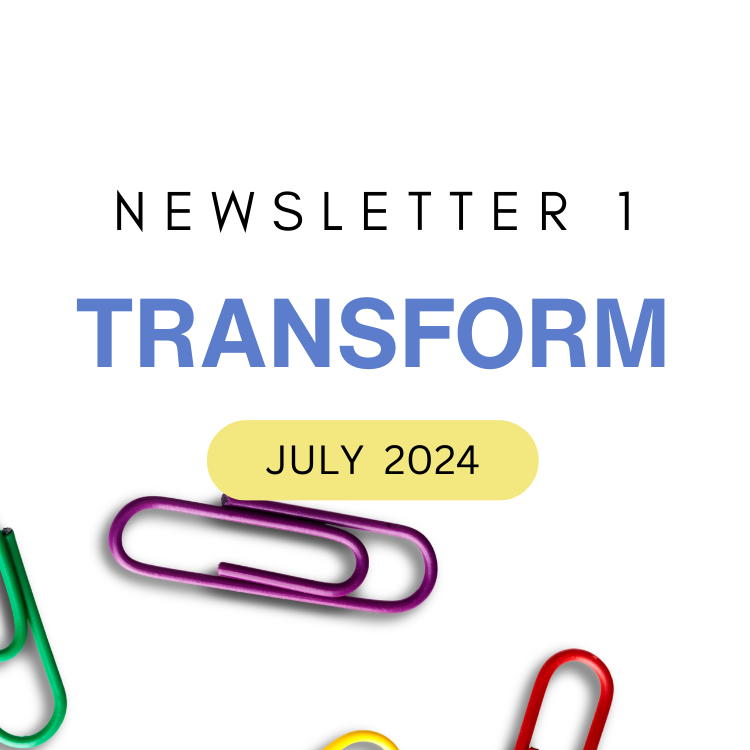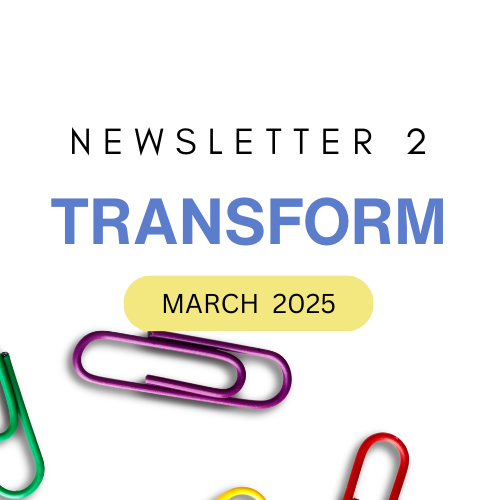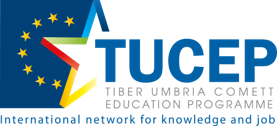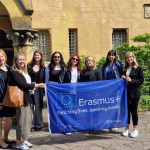This project has been funded with support from the European Commission. This publication reflects the views only of the author, and the Commission cannot be held responsible for any use that might be made of the information contained therein.
Partners
Meath Community Rural and Social Development Partnership Limited
Meath Partnership is a well-established Local Development Company with a strong track record and has been in operation since 1995. As a not-for-profit entity with Charitable Status, Meath Partnership maintains a primary focus on applying the entirety of its resources to the specific needs of its target groups and in meeting the requirements of contracting authorities with whom the company engages.
Specialising in the fields of social inclusion, rural development and training & education and through the application of resources at its disposal, Meath Partnership strives to support, assist and engage in social progression, the facilitation of rural and urban regeneration, the promotion of wellbeing across local communities and to support actions to address the causes and consequences of social and economic deprivation and poverty.
Meath Partnership is governed by a board of 19 Directors nominated and elected through a renewal process involving the implementation of an inclusive nomination and election process agreed in advance with the Department of Community and Rural Development. The board consists of four directors representing the community and voluntary sector, including the environmental pillar; one director representing Gaeltacht communities; four directors representing state agencies; three directors representing social partners; four directors representing small to medium enterprise and three directors representing organisations with a social inclusion remit.
The Board of Directors extends its governance reach through sub-committees of the board with responsibility for five key areas of operation namely; Social Inclusion; Rural Development; Finance, Audit & Compliance; Procurement and Tender Management; and Human Resources Management. All matters requiring decision must come before the Board of Directors whose decision is final.
In the management and delivery of the core operations of the company, Meath Partnership employs 34 permanent members of staff and a further 284 part-time employees linked to the Rural Social Scheme and Tús Programme. The company’s head office is based in Kells Business Park, Kells with outreach facilities in Laytown and Navan. Meath Partnership embraces the concept of diversity and recognises the value that diversity brings to an organisation, the core staff pool is drawn from five nationalities fluent in nine relevant languages in respect of clients presenting for support. This valuable resource supports Meath Partnership’s open door policy and accessibility ethos.
In international terms, Meath Partnership has extensive experience of EU Programmes gained through such initiatives as the EU Lifelong Learning Programme, the EQUAL Community Initiative, DG Asylum and Migrant Integration Programme, Interreg, DG Justice, the Norway Fund and the Erasmus+ Programme. In this respect, not only is Meath Partnership cognisant of current EU policy across its field of operations, the company is at the cutting edge of EU policy making for the future in respect of training and education, social inclusion, integration policy and strategic employment policies. Meath Partnership, given its history of achievement, depth of experience and available resources, is well placed to continue to support local development to good effect in Co. Meath.
Empresas CON VALORES
Asociación CON VALORES (ACV) is a non-profit organization working for work reintegration & social economy. We are creating bridges between the business & social spheres in order to implement an inclusive approach that supports entrepreneurship for people at risk of exclusion. ACV is formed by business professionals who share their know-hows in order to create a fairest society. Our mission is to use our business experiences and contacts and to generate employment opportunities for excluded groups of society. Our business vision is crucial and fundamental to match with social organizations needs. It allows us to identify, to generate and to boost work opportunities.
Moreover we aim to develop together tools and methodologies that support entrepreneurship among people at risk of exclusion in different contexts. In that sense, we created in 2019 an inclusive incubation model for excluded people. Our incubator is involving different business profiles: entrepreneurs, business associations, universities, technology centres, public institutions, etc. All those professionals are volunteering and bringing professional and specialized support in small business creation. Created companies will then be managed by excluded people with the support of a network of high level professionals from the business sector.
Since October 2019 we have supported 35 persons at risk of exclusion. 18 new business models with the support of 90 professionals have been developed. Our supportive approach is mainly based on agile and practical methodologies (Design Thinking, Lean Startup, Canvas Business model…). Our volunteers’ intervention is organized between training courses, mentoring, coaching, evaluation and feedback committees…
From September 2020 we are upgrading our model according COVID19 conditions and restrictions. We believe that those adaptations will allow us to define a resilient model for small businesses incubation in time of crisis.
Xenios Polis. Culture, Science and Action
Xenios Polis. Culture, Science & Action is a non-profit educational and research organization established in Athens, Attica (in a time and place with social and global changes) and whose aims are the cultural concern and scientific research as well as the organization of culture, education, training and social welfare programs. Emphasis is primarily on issues concerning specific social groups information, training and support – steadily or occasionally characterized as socially sensitive and vulnerable (refugees, immigrants, unemployees, low income populations, senior citizens, groups under the risk of exclusion). ΧENIOS POLIS staff include academic teachers, PhD holders, researchers, well experienced educators, adult trainers, volunteers, who have been actively engaged with programs focused on and dealing with disadvantaged groups.
Instituto Politécnico de Santarem
IPSantarém is a public higher education institution committed to high-level qualifications. Its mission is based on the production and dissemination of knowledge, culture, science, technology, the arts and research. It is aimed at students and the surrounding community, within a framework of regional, national and international reference, while also ensuring citizens’ access to higher education and lifelong learning. The importance that this institution has achieved within the higher education system is reflected in the high number of young people who apply to its courses, as well as the high employability rates of its graduates. It has five schools, namely in Agriculture; Sports Sciences; Education; Management and Technology; and the School of Health, and around 4,200 students in all its study cycles (Professional Courses; First Cycles and Master’s Degrees). As part of its research activity and connection to the socio-economic community, various scientific fields and disruptive projects have been furthered and succeeded. In line with the missions of its school, IPSantarém has strengthened its own action through excellent research, in addition to its Research Unit UI_IPSantarém. IPSantarém researchers are full scientific members of the renowned CIEQV Research Centre – Quality of Life, funded by FCT, the National Funding Agency for Science, Research and Technology, and the Digital Literacy and Social Inclusion Research Hub. The ‘Digital Literacy and Inclusion’ Research Hub is based at the Polytechnic Institute of Santarém in Portugal https://pololiteraciadigital.ipsantarem.pt.
The competences:
- Increase the knowledge resulting from Scientific and Technological Research in Digital Literacy and Inclusion of disadvantaged people in the labor market.
- To reinforce excellence in digital literacy as an effective strategy for inclusion in the labor market.
- To test the effectiveness of innovative resources and methodologies through empirical scenarios as a way of promoting the employability of this target group.
- To prototype a holistic inclusion support model.
Education Agency for Development and Innovation – IDEA not-for-profit Sp. z o.o.
We are a not-for-profit company aiming at career consultancy in regards to enhancing employability potential and equalizing professional opportunities for young people, especially those from unfavourable areas. Our company focuses mainly on youth but not only. We also engage in narrowing social gaps, e.g. increasing involvement of the elderly in the society. IDEA aims to fight youth unemployment and to foster social inclusion. We want to meet the growing demand for transversal skills such as critical and innovation thinking, entrepreneurial mind-set and creativity by current employers. Additionally, we are engaging in non-formal education projects and would like to increase the general public’s awareness in the field of lifelong learning. In 2021 IDEA became an official Regional EuroDesk Point in Poland. It is one of only two EuroDesk points in the region.
Tiber Umbria Comett Education Programme
TUCEP is a no profit association between Universities, Enterprises and Public institution born in 1992
TUCEP mission is to favor and develop cooperation between Universities and the world of work through the realization of training, research and consultancy projects aimed at promoting innovation and quality in vocational education and in processes for socio-economic development at regional, national, European level.
Because of this general aim, TUCEP is committed to:
- Analyse businesses’ training and professional needs
- Promote and improve the know-how of public entities, enterprises and other economic operators through the planning and the realization of specific training paths addressed to entrepreneurs, managers and technicians
- Favor the acquisition and the updating of key and professional competences by youth and adults, so to allow their access or repositioning in the labour market
- Realise study activities for disseminating information, especially in the fields of business production and management, and the development of advanced technologies
- Activate transnational mobility programs between Universities and Business
- Carry out pilot projects at European, national and regional level, aimed at experimenting innovative approaches and good practices in the field of education, research, business development and social cohesion
Outputs
Competency Framework for VET Educators
At the heart of fostering inclusive education is the development of well-equipped educators. The Transform project delivers a comprehensive Competency Framework for VET Educators, designed to enhance the skills and knowledge of professionals working with migrant and refugee learners. This 12-page framework focuses on six essential areas, such as intercultural communication, collaboration, resilience, and critical thinking. Alongside the framework, six interactive workshops and support videos provide practical tools and guidance for educators. With these resources, VET practitioners will be better prepared to create inclusive and welcoming learning environments across Europe.
Methodological Guide for Transformative Education in Europe
To inspire lasting change in vocational education, the Transform project offers a Methodological Guide for Transformative Education in Europe. This 30-page guide is a vital resource for VET practitioners, providing innovative approaches to embedding inclusion and diversity into daily practices. The guide features pedagogic strategies, real-life case studies, and expert theories from leaders in transformative education. Complementing the guide is a four-part "Train the Trainer" program and six expert videos, empowering educators to implement these concepts in their institutions. By building capacity and confidence, this guide supports a systemic shift toward inclusive learning environments.
Micro-Credential Course for VET Learners
The Transform project introduces a Micro-Credential Course to empower VET learners with a deeper understanding of integration, inclusion, and migration. This flexible curriculum comprises 60 engaging, short activities, each designed to build awareness and critical thinking around social inclusion. Validated by IP Santarem, the course aligns with the European Qualifications Framework, offering learners an opportunity to earn micro-credentials and digital badges as recognition of their efforts. These badges motivate learners and highlight their achievements, equipping them with skills that extend beyond the classroom and into society.
Storytelling for Change Campaign
Storytelling is a powerful tool for change, and the Transform project leverages it to amplify the voices of VET learners. The Storytelling for Change Campaign provides learners with safe spaces to share their experiences and perspectives on integration and inclusion. Through interactive workshops and creative storytelling methods, learners contribute to a collective narrative that highlights the importance of inclusive education. The campaign also includes dissemination activities, such as videos and reports, to share these impactful stories with stakeholders across Europe. This initiative not only raises awareness but also inspires action to ensure every learner feels heard and valued.
Gallery
News

Our first newsletter
TRANSFORM is dedicated to supporting educational centers to become places of inclusion through the redevelopment of pedagogical materials.

Our second newsletter
The TRANSFORM project continues fostering inclusivity in education. Discover the latest storytelling workshops empowering migrants and adult learners.







